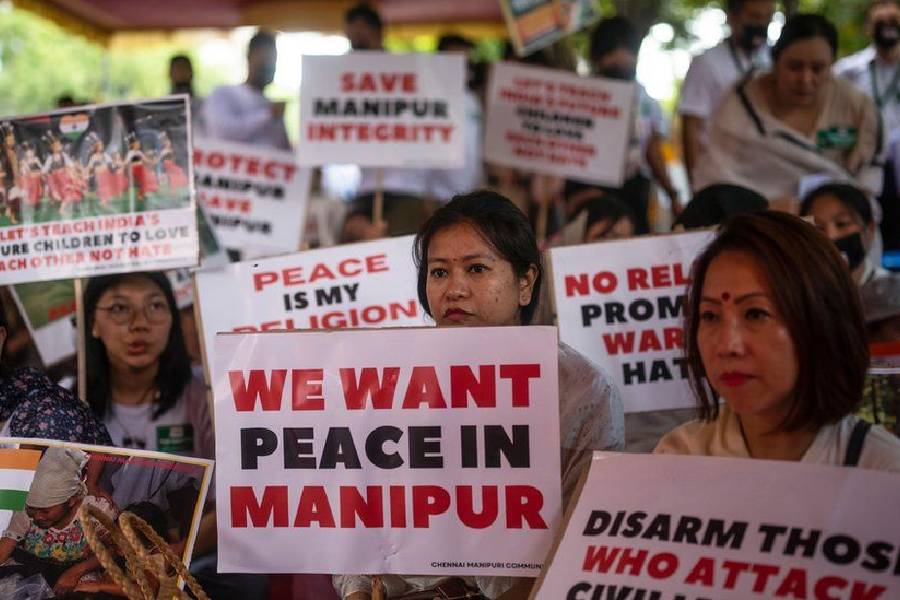One of the longest years in Manipur’s recent history, a year that witnessed unprecedented ethnic-religious violence between Meiteis and Kuki-Zo people, has now passed. Since the fire was lit last May — a Manipur High Court order, now rescinded, in favour of the inclusion of Meiteis in the scheduled tribe list was the principal catalyst — over 200 lives have been lost, thousands of people displaced, and property, including places of worship, vandalised. Worse, the fault lines between the adversarial communities continue to deepen. The marking of the one-year anniversary of bloodshed saw the warring communities press for contrasting demands, with the Kuki-Zo voices advocating for a separate administration and the Meiteis pitching for action against the alleged ‘narco-terrorism’ of the former. What has aggravated the situation in Manipur is a combination of apathy and partisanship on the part of the State. New Delhi’s indifference is best expressed by the shocking refusal of the prime minister, Narendra Modi, to visit the troubled state. The chief minister, also from
Mr Modi’s party, has cut for himself a sectarian figure, refusing to rise above partisan interests. The State’s seeming inability — unwillingness? — to douse the fire has created a dangerous vacuum that is now occupied by radical forces. The domination of the Arambai Tenggol of Manipur’s political and civil spaces — even elected legislators are expected to do its bidding — has been one of the consequences of the State’s inertia to breach the growing gap among communities.
It is unlikely that peace will return soon to Manipur in a meaningful manner. The scale of the violence has diminished; but it lingers. The immediate aim should be to open channels of inter-community dialogue facilitated by political stakeholders and civil society. Manipur’s historical fault lines — colonial, archaic land regulations that have contributed to ethno-spatial segregation are among them — need to be addressed simultaneously but as a long-term project so as not to heighten mutual antipathy. New Delhi — is the prime minister listening? — must shun its preferred role of a foster patron immediately. All of this is necessary given Manipur’s strategic location along India’s border: neighbouring Myanmar is in a flux. The state’s economic rehabilitation — Manipur has the third-lowest per capita income in India with high urban poverty — must begin in earnest. Tapping into the state’s economic potential must also be a representative process. Unity, rather than uniformity, should be the preferred goal while restoring normalcy to Manipur.











